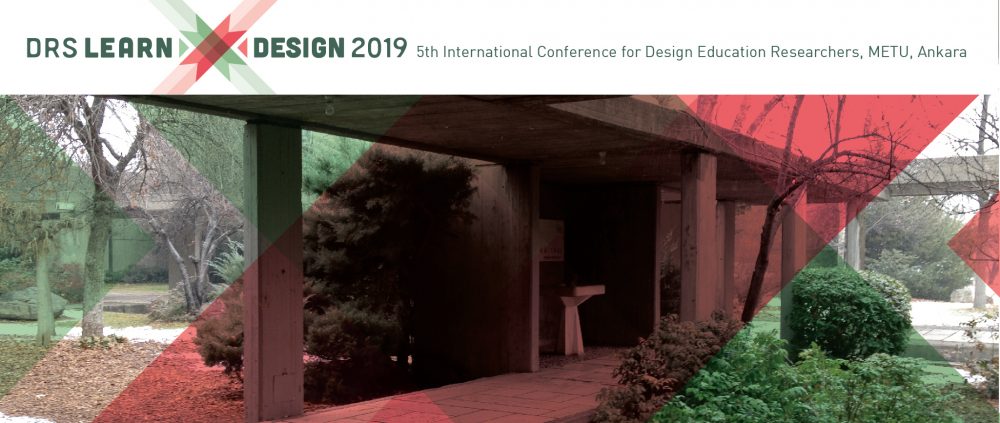Track 05. MORE-THAN-HUMAN PROTOTYPING AS PEDAGOGICAL IMPUGNATION
Co-chairs



Stan Ruecker, Anthony J. Petullo Professor of Design, University of Illinois, USA.
Pablo Hermansen, Dr., School of Design, Pontificia Universidad Católica de Chile, Chile.
Martín Tironi, Dr. School of Design, Pontificia Universidad Católica de Chile, Chile.
Although modernist principles (e.g. form, colour, composition, ergonomics, structural analysis, etc.) are still in widespread use in design pedagogy, they have not for some time now represented the only option. One alternative is the ‘anthropological turn’, often referred to as ‘human-centered design’, where the defining concept is that the designer is not an adequate surrogate for the user. This anthropocentric epistemology has arguably become the common, uncontested and politically correct place from which to teach and practice design. Nonetheless, as every frame of action that is taken for granted hides political and epistemological standpoints, the concept of human-centered design silently influences not just the process, but also the kinds of questions we tend to ask when practicing and teaching.
This track aims to precipitate a space for critically reviewing and contesting naturalized epistemological and methodological frameworks (e.g. user-centered design, problem-solving design). We want to dedicate special attention to the anthropocentric biases that encourage us to ignore the urgent ecological demands expressed by other-than-human beings in times of environmental crisis. Furthermore, we are also interested in the question of how critical action becomes an appropriate matter of design. Prototyping with other-than-human beings as a learning exercise, along with favouring a performative critique of anthropocentric politics, provide analytical keys to make the conceptualization of our modes of existence a matter of design, and in turn, to recognize design as a critical space to materialize unexpected and more-than-human ecologies. With this double challenge, we want to encourage participants to share experiences and reflections on design learning, where other-than-human actors significantly impact the affective and operative framework that a design classroom project produces. This track would like to explore, but is not limited to, the following topics:
- Prototyping
- Speculative research
- Cosmopolitical design
- Experimentation in design education
- Interspecies explorations
- More-than-human correspondence
- Design facing the Anthropocene
- Environmental enrichment
- Design anthropology
- Situated knowledge
- Performativity
Bibliography
Binder, T., Brandt, E., Ehn, P., and Halse, J. (2015). Democratic design experiments: between parliament and laboratory. CoDesign, 11(3-4), 152-165.
De la Rosa, J. (2017). Prototyping the non-existent as a way to research and innovate: A proposal for a possible framework for design research and innovation. The Design Journal, 20(sup1), S4468-S4476. DOI: 10.1080/14606925.2017.1352943.
DiSalvo, C. (2014). Critical making as materializing the politics of design. The Information Society: An International Journal, 30(2), 96-105. DOI: 10.1080/01972243.2014.875770
Forlano, L. (2017). Post-Humanism and Design. She Ji: The Journal of Design, Economics, and Innovation, 3(1), 16-29.
Hermansen, P., and Tironi, M. (2018). Pedagogical impugnation: Interspecies prototyping and cosmopolitical encounters. Diseña, (12), 196-227. DOI: 10.7764/disena.12.196-227.
Jönsson, L., and Lenskjold, T.U. (2014). A foray into not-quite companion species: Design experiments with urban-animals as significant others. Artifact, 3(2), 7.1-7.13.
Latour, B. (2005). From Realpolitik to Dingpolitik or How to Make Things Public. In B. Latour and P. Weibel (Eds.), Making Things Public: Atmospheres of Democracy (pp. 4-31). Cambridge, Massachusetts: MIT Press.
Maze, R. (2016). Design and the Future: Temporal politics of ‘making a difference’. In R.C. Smith, K.T. Vangkilde, and M.G. Kjaersgaard (Eds.), Design Anthropological Futures (pp. 37-54). London: Bloomsbury Publishing.
Michael, M. (2012). De-signing the object of sociology: toward an idiotic methodology. The Sociological Review, 60(S1), 166-183.
Stengers, I. (2010). Including Nonhumans in Political Theory: Opening Pandora’s Box? In B. Braun and S.J. Whatmore (Eds.), Political Matter: Technoscience, Democracy, and Public Life (pp. 3-34). Minneapolis: The University of Minnesota Press.
Tironi, M., and Hermansen, P. (2018). Cosmopolitical encounters: Prototyping at the National Zoo in Santiago, Chile. Journal of Cultural Economy, 11(4), 330-347.
Tsing, A. (2010). Arts of Inclusion, or How to Love a Mushroom. Manoa, 22(2), 191–203.
Wilkie, A., Savransky, M., and Rosengarten, M. (2017). Speculative Research: The Lure of Possible Futures. London: Routledge.
